'Meatball Sweethearts': Shaming the fat-shamers in Taiwan
- Published
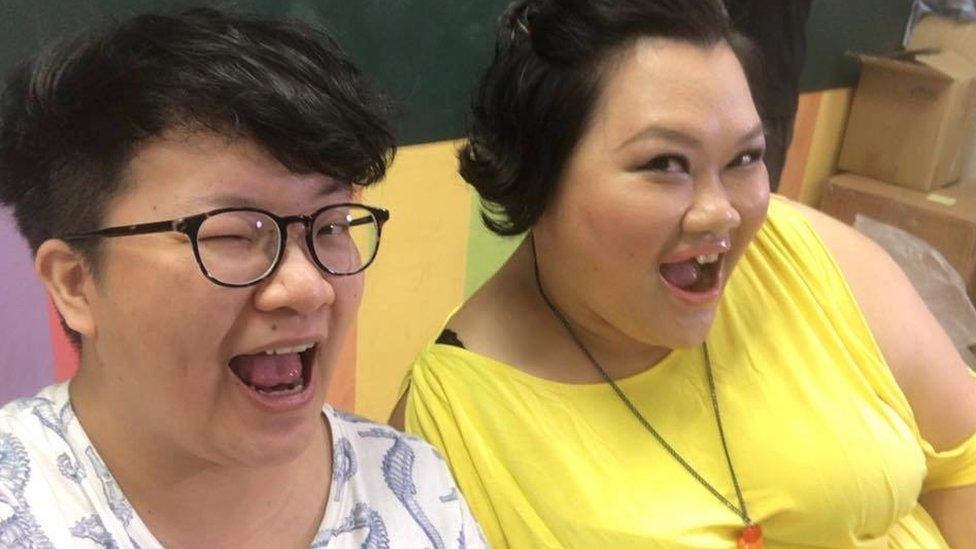
Mallie Hsieh (L) and Amy Lin say it's time to stop vilifying people for their weight
Taking the metro with Mallie Hsieh, 32, and Amy Lin, 34, it's obvious they're wider than most of the other passengers.
Mallie is perched on the edge of a seat trying not to squeeze up against the man next to her. Amy takes up nearly two seats.
In Taiwan, a society that thinks one has to be thin to be beautiful, Mallie and Amy - who both weigh more than 85kg (13 stone) - stand out.
But the women are not ashamed of their body size and they don't like anyone trying to make them feel so.

"Many foreigners think Taiwanese people are very friendly, but to me many people here are too friendly," says Amy.
"People I don't know would come up and tell me: 'You're too fat. Do you want me to help you lose weight?' But my body is my responsibility! Why do other people feel they can correct me on my body?"
'Eating is part of being happy'
Taiwanese body weight has been rising in the past few decades, a result of people eating more - especially fatty and sugary processed foods - and not getting enough exercise.
Now nearly 45% of adults are classed as overweight or obese; so are 29% of children. A government campaign to promote slimming down, entering its seventh year, has barely reduced that percentage.
But Mallie and Amy think it's time Taiwan stopped vilifying people for being fat.
Both women have been overweight since they were children.
Mallie, a social worker who helps people with HIV/Aids, comes from a family in which everyone is large except her mother.
"What annoys me is people thinking there's something wrong with me, including my mom. She tells me: 'You're still so fat. Why don't we work harder at losing weight this year?' But she's not so concerned about my brother even though he weighs more than I do," said Mallie.
"I've been trying to lose weight for the past 20 years. It's very tiring."
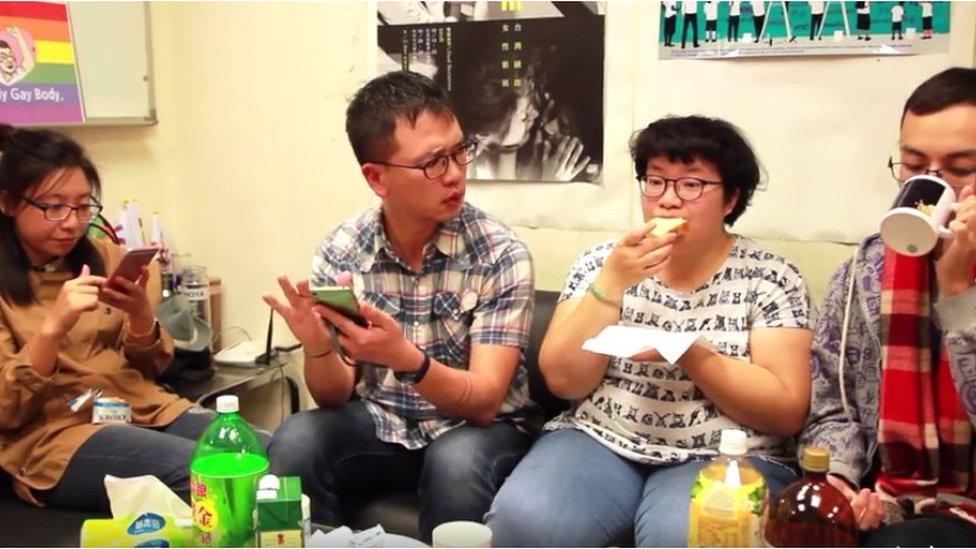
The duo's Facebook videos poke fun at society's views of overweight people
Amy, who works at an NGO that advocates for the LGBT community, is the only overweight person in her family.
"I think I got fat because I think eating and being full are a very important part of being happy," she says.
"Many years later, I realised food had that effect on me. I don't want to change this."

You might also enjoy:
Sweet sensation: One mother's battle against sugar
Meeting in secret: The outcast wives of India
'The priest refused to marry us': The couple who fought World War Two racism

In late 2015, the women launched their Facebook page Lady Bom Bom Power, external, also called Rou Dan Tian Xin, or Meatball Sweethearts, in Chinese.
Every month, they post a video or an essay which, through humour, combats stereotypes and aims to change perceptions.
In a video posted just before the recent Lunar New Year holiday, a skit shows an overweight woman at her family gathering, external being told by her brother she's already too fat, so she shouldn't eat so much, otherwise she wouldn't be able to get married.
Her mother tells her she's eating her brother's share. Mallie and Amy then offer advice to viewers on how to deal with such unpleasant comments from family and relatives.
"I usually try to change the topic quickly, look that person straight in the eye, smile and say: 'Thank you for your concern auntie' and keep eating," Mallie tells viewers.
Amy adds: "I would be a bit more polite and say: 'Being able to eat is happiness,' and walk away with my rice bowl."
The women also share tips on how to handle questions about how they will find a boyfriend or husband.
Mallie says: "I tell them 'Actually even if I become thin, I might not necessarily marry a man!' I believe they won't keep asking after that!"

In another video, they tackle questions people often ask, external those who are overweight:
"Where do fat people make friends?" Amy answers: "Actually I don't have any friends."
Another person asked: "Is fat people's poop bigger?"
'Being beautiful means being thin'
Humour aside, the women's message is clear: fat people don't like to be treated differently by the rest of society.
Mallie and Amy believe there is particular pressure in Taiwan and other parts of Asia to conform to a thin beauty standard.
"I think practically all of Asia thinks being beautiful means being thin," Mallie said. "For example, overseas you can buy clothes that are size 14 or 16. Here in Taiwan, they don't import large sizes. We have to buy them online."
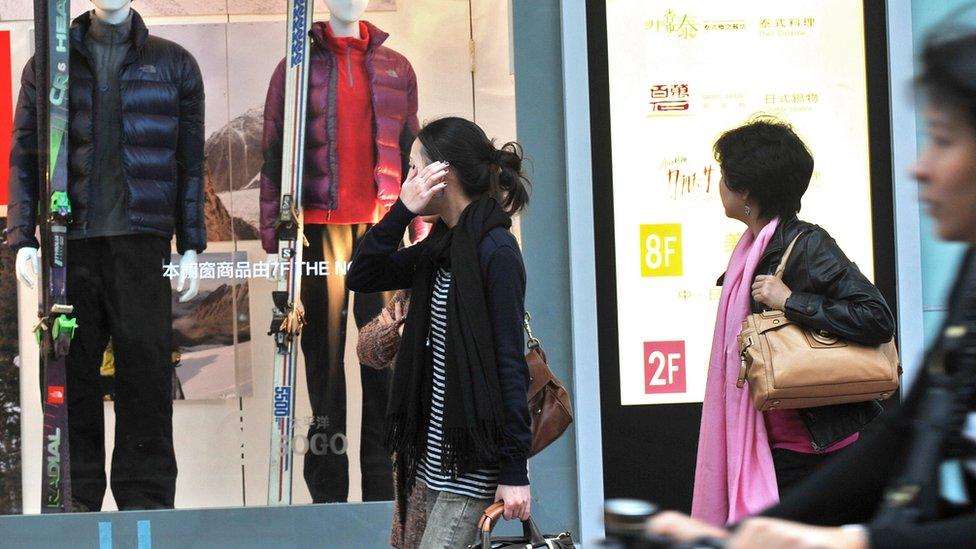
Consumer culture in Taiwan is geared more towards a thin aesthetic
The response to their website has been mostly positive. They have nearly 8,000 followers and some videos have enjoyed more than 30,000 views. Local media have also interviewed them.
"Many people say we've spoken what was on their mind," said Mallie.
One overweight viewer wrote: "You two are amazing! Usually I lose it when people ask me such questions."
But some viewers express concerns about health: "Of course you can be fat and confident, fat in a beautiful way, but to throw away health, that's a problem!"
But Mallie and Amy say they're not promoting being fat - they accept there are health risks. They simply want people to accept their own and other people's bodies.
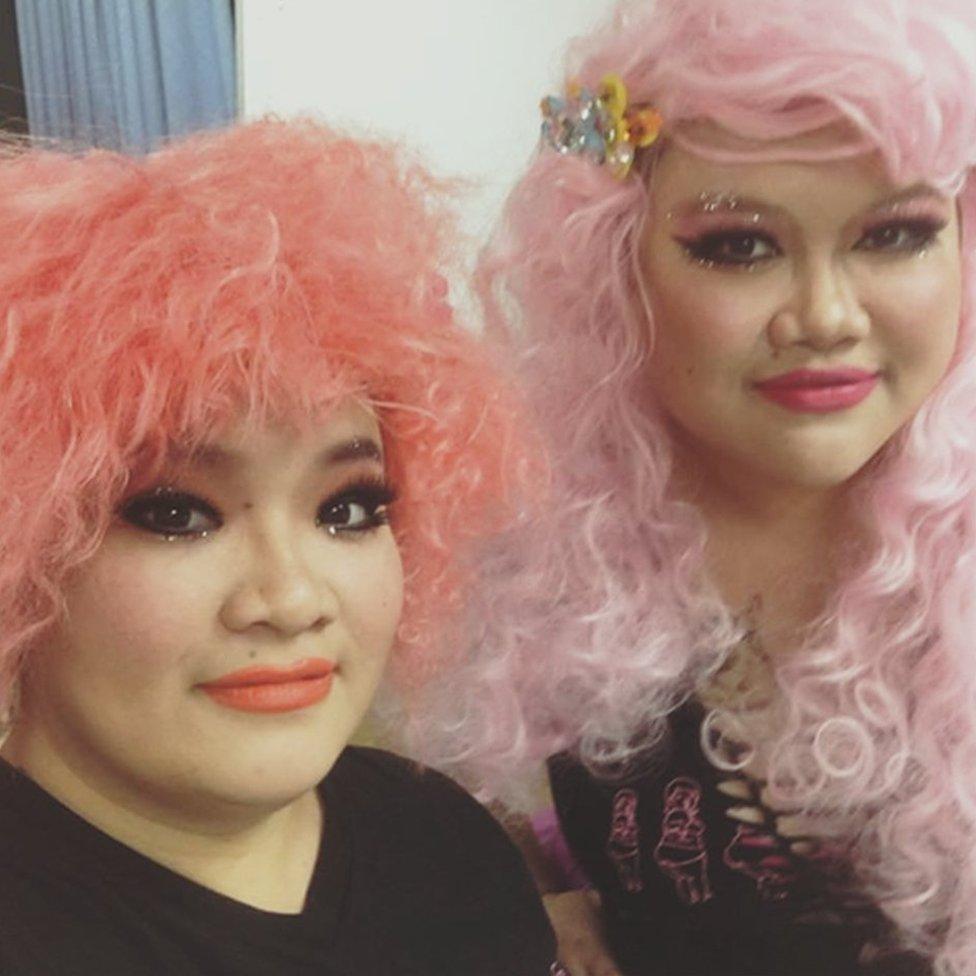
Surprisingly, their webpage has also struck a chord with people considered too thin, too tall or too tomboyish and even so-called normal size people.
"What made the strongest impression on me is a woman who recognised me on the street one day, came up and thanked us for what we were doing," said Amy.
"I thought she didn't have such problems because she has a standard body size, but she said actually from the time she was young, she has faced pressure to look a certain way, which made her unhappy.
"So it makes me think who has this society spared? Who in this society is really relaxed about the way they look?"
What they want to do is "teach people to be accepting of different body types so that we can be mentally and physically well", Mallie says.
"I hope after seeing our videos, people really feel free towards themselves and others," Amy said. "Real happiness to me is accepting who I am and having other people accept who I am."
As their website greeting says: "In the meatball world, everyone is a sweetheart."
- Published27 February 2017
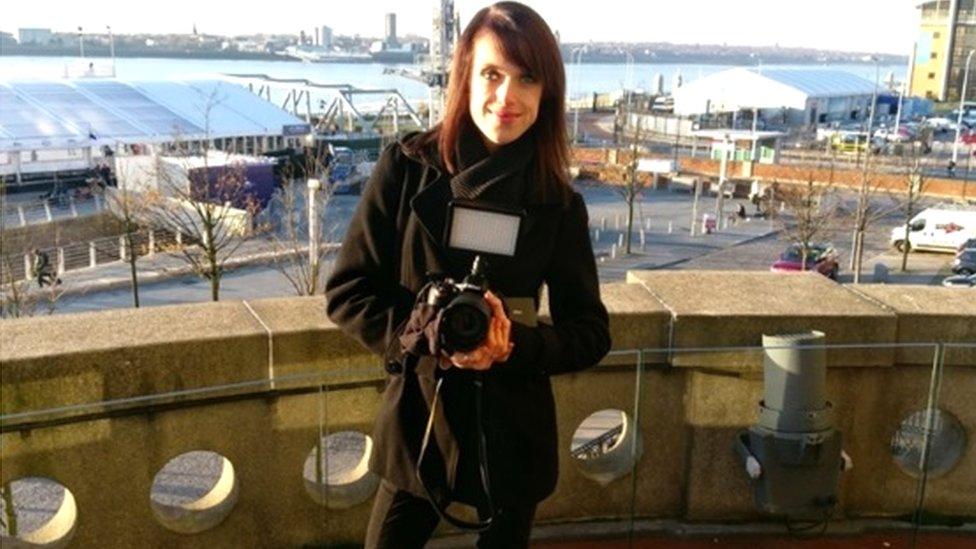
- Published22 February 2017

- Published2 February 2017
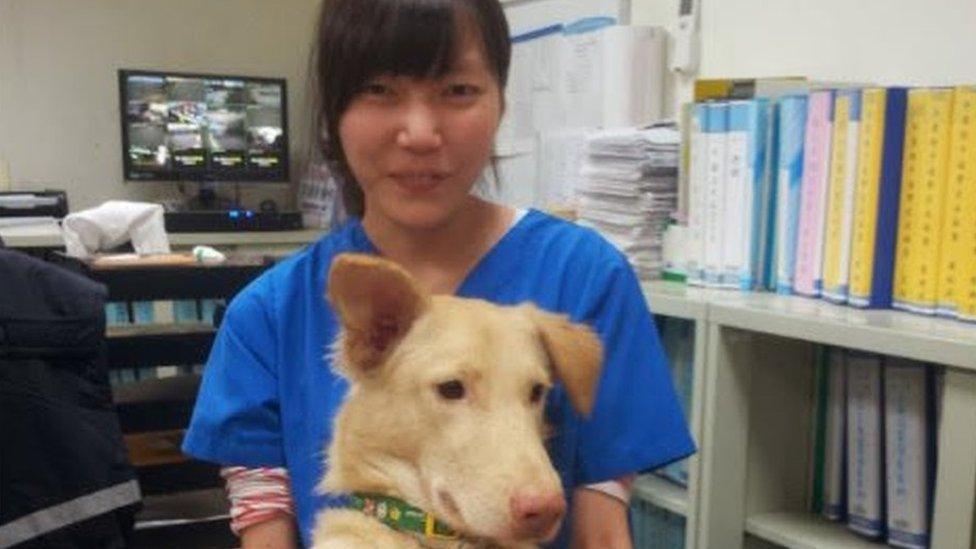
- Published26 March 2016
